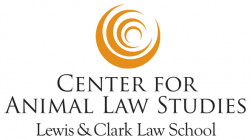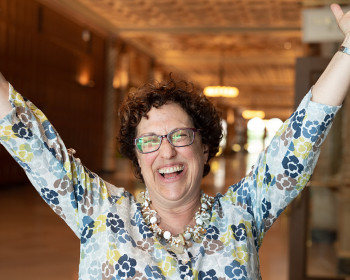Professor Tischler Shares Scholarship on Industrial Animal Agriculture at Oxford
In this blog, Professor Joyce Tischler discusses her work for farmed animals at the Seventh Annual Oxford Summer School on Animal Ethics
Open gallery

I’ve just returned from the Seventh Annual Oxford Summer School on Animal Ethics, held at Merton College, University of Oxford, from August 7-10, 2022. This conference was a delightful high-speed train from start to finish, with 60 speakers presenting on topics ranging from art to economics, and law, ethics, public policy, etc., all of them related to animals. By the end of the third day, my brain felt so full that there was no room left to absorb more information. But, it was a fun ride!
The Summer School opened with a welcome from the Revd Professor Andrew Linzey, the prolific author of numerous books and articles about theology and animals, and his daughter, Dr. Clair Linzey. Together, they form the heart of the Oxford Centre for Animal Ethics, and Clair serves as the director of this program.
The Linzey family creates a supportive and friendly atmosphere. Merton College has had a rich history since its founding in 1264. While I had come to the Summer School to serve as a presenter, I was awed by the beauty and majesty of Merton College, with its gorgeous old stone buildings, abundant gardens and dark wooden interior walls. Merton College boasts four Nobel Prize winners, as well as many leaders of the UK and eminent scholars.
The participants in the Summer School came from many parts of the globe. Among the presenters were our Animal Law LLM alums: Alice Di Concetto (’16, France) and David Rosengard (’16, US), who is also one of our Adjunct Professors. I also had the opportunity to reconnect with Dr. Gieri Bolliger, the Executive Director of Tier im Recht and our first international Animal Law LLM graduate (’14, Switzerland).
I offered three presentations, all of them focused on developing scholarship relating to industrial animal agriculture. As part of a roundtable panel on implementing public policy on animals, I analyzed the positive impact and effectiveness of innovative new approaches like Meatless Mondays, as well as the introduction of Vegan Fridays to all New York City public schools by Eric Adams, the new Mayor of New York City. I pointed out a recent request by 32 Democratic members of Congress that federal cafeterias offer plant-based food options. The Congressional members urged President Biden “to strongly encourage all federal agencies to make a vegetarian entree available everywhere that federal government cafeterias are serving meals–from federal agencies, museums and national parks to prisons and military bases.”
Recent studies show that asking consumers to make small dietary changes, such as Meatless Mondays, can lead to larger dietary changes that benefit animals, human health and protection of the environment. These are subtle signs that the movement towards plant-based diets is gaining traction. Every bit of progress matters to the 9 billion land animals raised and slaughtered in the U.S. annually.
I followed that talk with a presentation in which I argued that, in addition to other tactics, introducing taxes on meat can lead to lower meat consumption and help bring an end to industrial animal agriculture. Several European governments have discussed the potential for taxing meat, and it appears that the government of New Zealand, working with farmers and the Maori tribe, will be the first to institute a tax on meat. A program called He Waka Eke Noa, which means “we are all in this canoe together,” is developing a system for measuring, managing and reducing agricultural greenhouse gas emissions, and part of the plan is to charge farmers for methane emissions from cows and sheep, in other words, place a tax on cow and sheep burps. Visit here for more information about this groundbreaking plan.
My final presentation was an appeal to imagine what food could be like without animals being on the plate. That’s right: no moo, baah, cluck or oink. Imagine! Ranging from plant-based meats, to alternative cheeses and milk, to cell-cultivated meat and use of the fermentation process, I gave the audience a birds-eye view of what the food of the future may very well look like. This is an area ripe for collaboration in the fields of animal law and food law, that is innovative and facilitates a better future for farmed animals, human beings and the environment.
The Oxford Summer School was a wonderful experience and one that I recommend for anyone interested in learning more about the cross-section of approaches to protecting animals and establishing their legal rights.

The Center for Animal Law Studies

More Center for Animal Law Studies Stories
Center for Animal Law Studies is located in Wood Hall on the Law Campus.
MSC: 51
email cals@lclark.edu
voice 503-768-6960
Center for Animal Law Studies
Lewis & Clark Law School
10101 S. Terwilliger Boulevard MSC 51
Portland OR 97219

